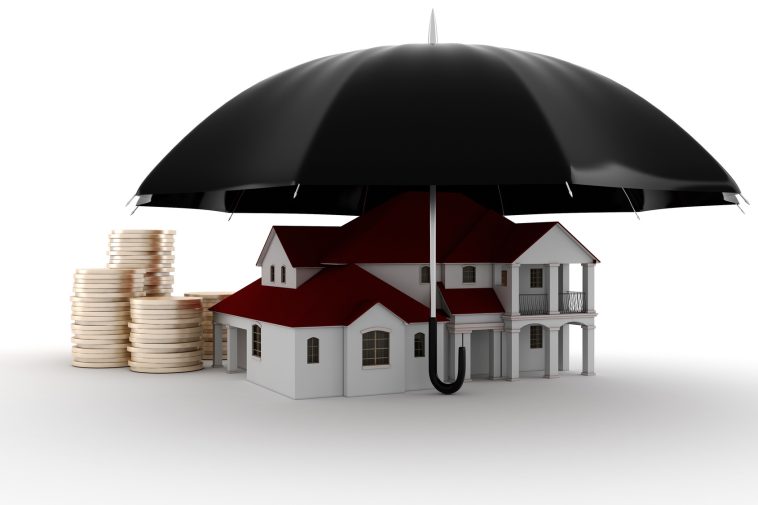Homeowners Insurance: Protecting Your Property and Finances
Homeowners insurance is a crucial safeguard for homeowners, providing financial protection against unforeseen events that could damage or destroy their property. In this comprehensive guide, we’ll explore the basics of homeowners insurance, including the types of coverage available, factors that influence premiums, and essential considerations for choosing the right policy to protect your home and assets.
Understanding Homeowners Insurance Coverage
Homeowners insurance typically offers several types of coverage to protect your home, belongings, and personal liability. The primary components of homeowners insurance coverage include:
- Dwelling Coverage: Dwelling coverage protects the physical structure of your home, including the walls, roof, foundation, and attached structures like garages or decks. It provides reimbursement for repair or replacement costs if your home is damaged or destroyed by covered perils, such as fire, windstorm, or vandalism.
- Personal Property Coverage: Personal property coverage insures your belongings, such as furniture, clothing, electronics, and appliances, against loss or damage caused by covered perils. It’s essential to take inventory of your possessions and assess their value to ensure you have adequate coverage in the event of a loss.
- Liability Coverage: Liability coverage protects you financially if someone is injured on your property or if you accidentally damage someone else’s property. It covers legal fees, medical expenses, and settlement costs if you’re found liable for injuries or damages resulting from negligence.
- Additional Living Expenses (ALE) Coverage: ALE coverage, also known as loss of use coverage, reimburses you for additional living expenses if you’re unable to live in your home due to covered damage or loss. It typically covers costs such as temporary housing, meals, and transportation.
Factors Affecting Homeowners Insurance Premiums
Several factors influence the cost of homeowners insurance premiums, including:
- Location: The location of your home plays a significant role in determining your insurance premiums. Factors such as the risk of natural disasters, crime rates, and proximity to fire hydrants or fire stations can impact your insurance rates.
- Home Characteristics: The age, size, construction materials, and features of your home, such as the roof type, heating system, and security measures, can affect your insurance premiums. Newer homes and those built with durable materials may qualify for lower rates.
- Coverage Limits and Deductibles: The amount of coverage you purchase and the deductible you choose can impact your insurance premiums. Higher coverage limits and lower deductibles typically result in higher premiums, while lower coverage limits and higher deductibles lead to lower premiums.
- Claims History: Your claims history, including the frequency and severity of previous claims filed, can influence your insurance premiums. Homes with a history of multiple claims may be considered higher risk and subject to higher premiums.
- Credit Score: In some states, insurers may consider your credit score when determining your insurance premiums. A higher credit score indicates lower financial risk and may result in lower insurance rates.
Tips for Choosing the Right Homeowners Insurance Policy
To select the best homeowners insurance policy for your needs, consider the following tips:
- Assess Your Coverage Needs: Evaluate the replacement cost of your home and belongings, as well as your potential liability risks, to determine the appropriate coverage limits for your policy.
- Shop Around: Obtain quotes from multiple insurance companies and compare coverage options, rates, and discounts. Consider working with an independent insurance agent who can help you explore different policy options.
- Review Policy Exclusions and Limitations: Read the policy documents carefully to understand what is covered and excluded from your homeowners insurance policy. Pay attention to specific perils, such as floods or earthquakes, that may require additional coverage.
- Bundle Your Policies: Consider bundling your homeowners insurance with other insurance policies, such as auto or umbrella insurance, to qualify for multi-policy discounts and save money on premiums.
- Review and Update Your Policy Annually: Regularly review your homeowners insurance policy to ensure it reflects any changes to your home, belongings, or financial situation. Update your coverage as needed to maintain adequate protection.
Conclusion
Homeowners insurance is a vital tool for protecting your home, belongings, and finances against unexpected events. By understanding the basics of homeowners insurance coverage, factors that influence premiums, and essential considerations for choosing the right policy, you can make informed decisions to safeguard your home and assets for the future.



